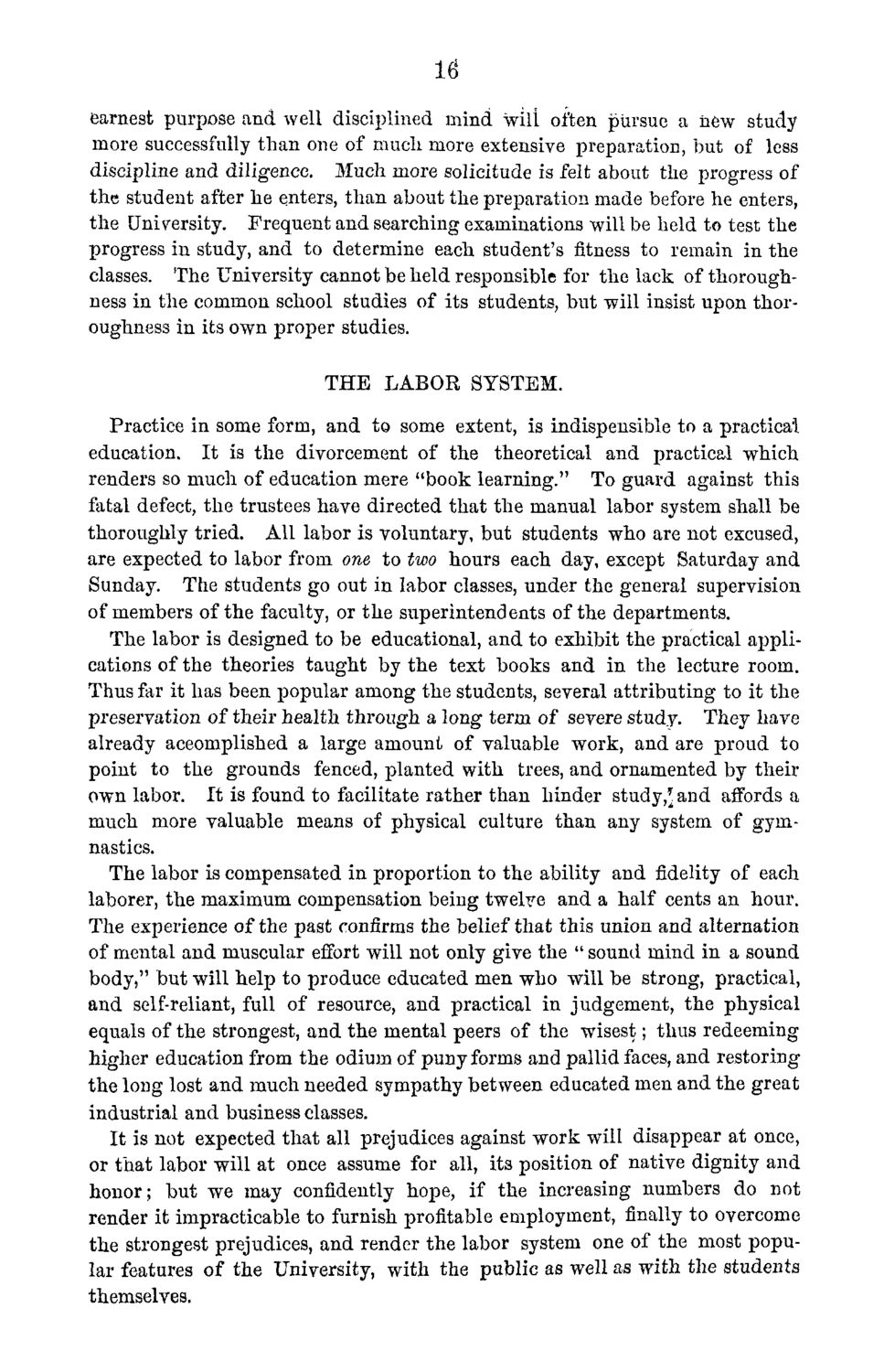| |
| |
Caption: Course Catalog - 1868-1869 VERSION A
This is a reduced-resolution page image for fast online browsing.

EXTRACTED TEXT FROM PAGE:
earnest purpose find well disciplined mind will often pursue a new study more successfully than one of mucli more extensive preparation, but of less discipline and diligence. Much more solicitude is felt about the progress of the student after he enters, than about the preparation made before he enters, the University. Frequent and searching examinations will be held to test the progress in study, and to determine each student's fitness to remain in the classes. The University cannot be held responsible for the lack of thoroughness in the common school studies of its students, but will insist upon thoroughness in its own proper studies. THE LABOR SYSTEM. Practice in some form, and to some extent, is indispensible to a practical education. It is the divorcement of the theoretical and practical which renders so much of education mere "book learning." To guard against this fatal defect, the trustees have directed that the manual labor system shall be thoroughly tried. All labor is voluntary, but students who are not excused, are expected to labor from one to two hours each day, except Saturday and Sunday. The students go out in labor classes, under the general supervision of members of the faculty, or the superintendents of the departments. The labor is designed to be educational, and to exhibit the practical applications of the theories taught by the text books and in the lecture room. Thus far it has been popular among the students, several attributing to it the preservation of their health through a long term of severe study. They have already aceomplished a large amount of valuable work, and are proud to point to the grounds fenced, planted with trees, and ornamented by their own labor. It is found to facilitate rather than hinder study,^ and affords a much more valuable means of physical culture than any system of gymnastics. The labor is compensated in proportion to the ability and fidelity of each laborer, the maximum compensation being twelre and a half cents an hour. The experience of the past confirms the belief that this union and alternation of mental and muscular effort will not only give the " sound mind in a sound body," but will help to produce educated men who will be strong, practical, and self-reliant, full of resource, and practical in judgement, the physical equals of the strongest, and the mental peers of the wisest; thus redeeming higher education from the odium of puny forms and pallid faces, and restoring the long lost and much needed sympathy between educated men and the great industrial and business classes. It is not expected that all prejudices against work will disappear at once, or that labor will at once assume for all, its position of native dignity and honor; but we may confidently hope, if the increasing numbers do not render it impracticable to furnish profitable employment, finally to overcome the strongest prejudices, and render the labor system one of the most popular features of the University, with the public as well as with the students themselves.
| |